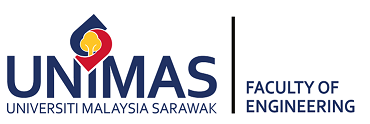Department Chemical Engineering and Energy Sustainability
Programme Educational Objectives (PEO)
The goal of this programis to produce future engineerwho is skillful, efficient and high caliberbased on the department programme objectives as follows:
PEO1 - Graduates are able to apply engineering knowledge at their respective career.
PEO2 - Graduates are able to pursue their career in national and multinational organisations.
PEO3 - Graduates are competent to explore, utilise and diversify natural resources sustainably.
PEO4 - Graduates utilise engineering tools and skills necessary to perform job as professional in their workplace.
PEO2 - Graduates are able to pursue their career in national and multinational organisations.
PEO3 - Graduates are competent to explore, utilise and diversify natural resources sustainably.
PEO4 - Graduates utilise engineering tools and skills necessary to perform job as professional in their workplace.
Programme Learning Outcomes (PLO)
Students will be able to achieve the following programme outcomes upon their graduation:
PLO1 - Apply knowledge of mathematics, natural science, engineering fundamentals and an engineering specialization to the solution of complex Chemical Engineering problems
PLO2 - Identify, formulate, conduct research literature and analyse complex Chemical Engineering problems reaching substantiated conclusions using first principles of mathematics, natural sciences and engineering sciences
PLO3 - Design solutions for complex Chemical Engineering problems and design systems, components or processes that meet specified needs with appropriate consideration for public health and safety, cultural, societal and environmental considerations
PLO4 - Conduct investigation of complex Chemical Engineering problems using research-based knowledge and research methods including design of experiments, analysis and interpretation of data, and synthesis of information to provide valid conclusions
PLO5 - Create, select and apply appropriate techniques, resources and modern engineering and IT tools, including prediction and modelling, to complex Chemical Engineering problems, with an understanding of the limitations
PLO6 - Apply reasoning informed by contextual knowledge to assess societal, health, safety, legal and cultural issues and the consequent responsibilities relevant to professional engineering practice and solutions to complex engineering problems
PLO7 - Understand and evaluate the sustainability and impact of professional engineering work in the solutions of complex engineering problems in societal and environmental contexts
PLO8 - Apply ethical principles and commit to professional ethics and responsibilities and norms of engineering practice
PLO9 - Communicate effectively on complex engineering activities with the engineering community and with society at large, such as being able to comprehend and write effective reports and design documentation, make effective presentations, and give and receive clear instructions
PLO10 - Function effectively as an individual, and as a member or leader in diverse teams and in multidisciplinary settings
PLO11 - Recognize the need for, and have the preparation and ability to engage in independent and life-long learning in the broadest context of technological change
PLO12 - Demonstrate knowledge and understanding of engineering management principles and economic decision making and apply these to one’s own work, as a member and leader in a team, to manage projects in multidisciplinary environments and to cultivate entrepreneurship skills


